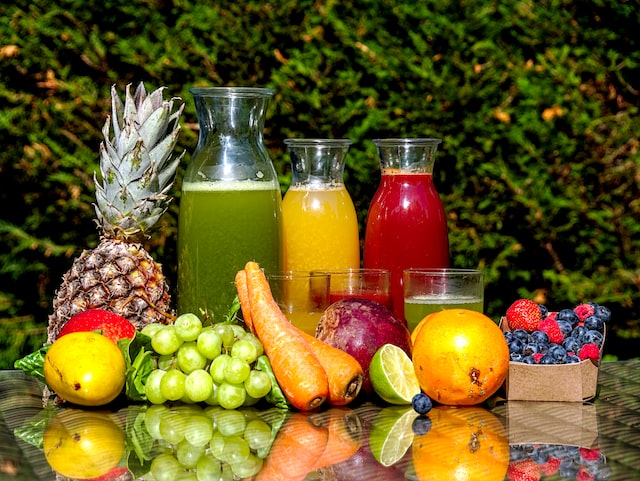
Ever wondered what the difference is between regular juice and cold-pressed juice? If you’re health-conscious or simply enjoying a refreshing glass of juice, it’s important to know what goes into your drink and how it was made. In this blog post, we’ll be taking a closer look at the difference between these two types of juices so that you can make an informed decision the next time you’re at the store or ordering online.
What is Cold-Pressed Juice?
Cold-pressed juice is made using a hydraulic press that extracts juice from fruits and vegetables using a slow, steady, and gentle process. This method preserves more vitamins, minerals, and enzymes than traditional juicing methods, which can cause oxidation and degradation of nutrients. Cold-pressed juices are also typically less pulpy than their centrifugal juicing counterparts.
The Health Benefits of Cold-Pressed Juice
Since cold-pressed juice contains more nutrients than regular juice, it’s often touted as being healthier. And while it is true that cold-pressed juice contains more vitamins, minerals, and antioxidants than regular juice, it’s important to remember that both types of juice are highly processed foods that should be consumed in moderation. Juicing removes the fibre from fruits and vegetables, which means that juices made from whole foods will cause a spike in blood sugar levels. So, if you’re looking for a healthy way to get your fruit and vegetable fix, eating whole fruits and vegetables is still your best bet.
The Difference in Processing
One of the biggest differences between juice and cold-pressed juice is the way that they are processed. Juice is made by using a juicer, which extracts the liquid from the fruit or vegetable through centrifugal force. The pulp and fibre are removed in this process, leaving behind only the liquid.
Cold-pressed juice is made using a hydraulic press that slowly crushes the fruits and vegetables until they release their juice. This process preserves more of the nutrients and enzymes since the pulp and fibre are not removed. As a result, cold-pressed juices tend to be more nutrient-dense than their juiced counterparts.
The Difference in Shelf Life
Another big difference between these two types of juices is their shelf life. Since juiced fruits and vegetables are exposed to oxygen during the juicing process, they start to oxidize quickly. This causes them to lose some of their nutrients and flavour. For this reason, juiced fruits and vegetables should be consumed within 24 hours for optimal taste and nutrition.
On the other hand, cold-pressed juices last much longer since they aren’t exposed to oxygen during processing. Most cold-pressed juices will stay fresh for up to 72 hours. This means that you can make a big batch at the beginning of the week and enjoy fresh juice all week long!
Conclusion
So, what’s the bottom line? If you’re looking for a healthy option with maximum nutrient retention, cold-pressed juice is the way to go. However, if you’re looking for something that will last longer or you’re on a budget, regular juice is a perfectly fine option as well. No matter which type of juice you choose, you’ll be getting a delicious drink that’s packed with vitamins and minerals!






